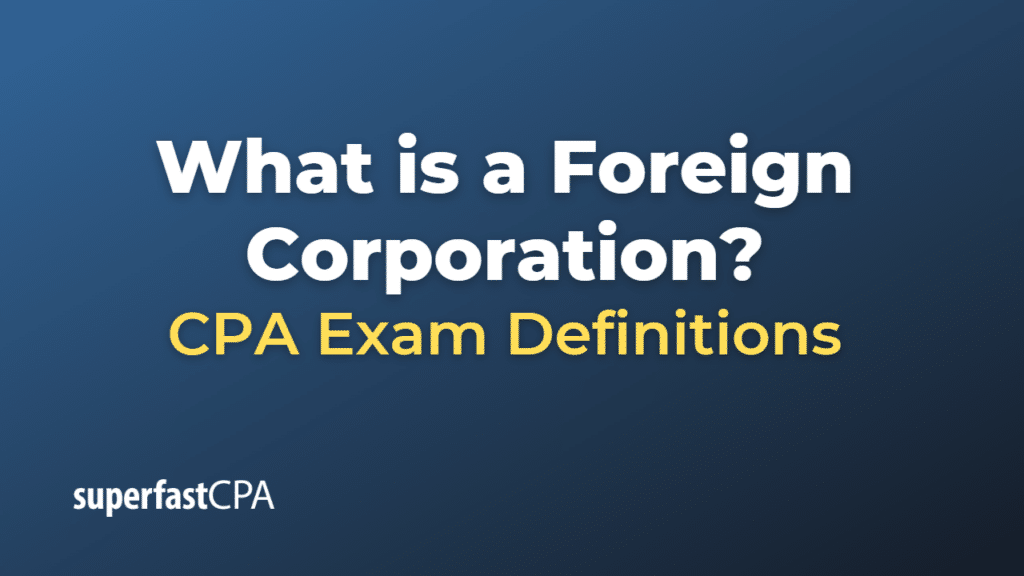Foreign Corporation
A foreign corporation refers to a business entity that is incorporated in one jurisdiction, typically a state or country, but is doing business in another. The term “foreign” does not necessarily mean the company is incorporated in another country; it can also mean the corporation is registered in a different state within the same country.
For example, if a company is incorporated in Delaware (a popular state for incorporation in the United States due to its business-friendly laws and courts), but it conducts business in California, it would be considered a foreign corporation in California. To legally do business in California, it would need to qualify or register as a foreign corporation there, which usually involves paying a fee and appointing a registered agent in that state for service of process.
It’s important to note that being a “foreign corporation” has legal and tax implications. Typically, a foreign corporation must comply with the laws and regulations of any state or country in which it does business, not just where it’s incorporated. This can include qualifying or registering to do business in that state, paying certain taxes, and filing annual reports or other documentation.
To sum up, a foreign corporation is not about international boundaries but rather about corporate registration and the jurisdiction of incorporation versus the jurisdiction where the business operates.
Example of a Foreign Corporation
Imagine there is a tech company named “TechGenius, Inc.” that was originally incorporated in Delaware due to its business-friendly regulations and tax structures. TechGenius, Inc. has its headquarters and major operations center in New York, however, where a majority of its employees work and where it also conducts a lot of its business.
Even though both Delaware and New York are in the United States, TechGenius, Inc. would be considered a foreign corporation in New York because it was originally incorporated in Delaware. To legally conduct business in New York, TechGenius, Inc. would have to register as a foreign corporation in New York. This would involve fulfilling New York’s requirements for foreign corporations, which may include paying certain fees, filing specific paperwork, appointing a registered agent for service of process in New York, and complying with New York’s business laws and regulations.
Moreover, TechGenius, Inc. would likely have to pay taxes in New York on the income derived from the activities in that state, even though it’s incorporated in Delaware. This is a typical scenario for many businesses that operate in multiple states or countries and demonstrates how a corporation can be domestic in one jurisdiction and foreign in another.













